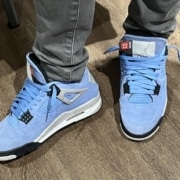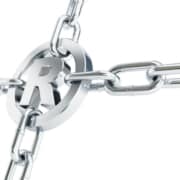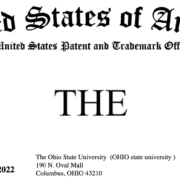Protect Yourself from Cybersquatters like a Tour de France Champion
Reminiscent of an ascent up the legendary Alpe d’Huez, three time Tour de France champion Greg Lemond has launched a brutal attack against two Minnesota businessmen under the Anticybersquatting Consumer Protection Act (“ACPA”). Lemond is seeking a permanent injunction and $6.6 million in damages for their alleged unauthorized control over 66 web addresses associated with Lemond’s trademarked name and business, called Grail (such as lemondgrail.com and grailcarbon.us). U.S. District Judge John Tunheim has already found partially in Lemond’s favor by granting a temporary restraining order barring the businessmen from registering any additional domain names tied to Lemond or his business or transferring or selling the ones they already control.
Lemond’s actions provide a good example of one way to effectively combat cybersquatting – the practice of registering names, especially well-known company or brand names, as Internet domains, in the hope of reselling them at a profit. Like the lead out train for Mario Cipollini, the ACPA is a powerful tool for trademark owners. Not only does the ACPA allow successful litigants to wrest ownership of the domain name from the wrongdoer, it provides statutory damages of $1,000 to $100,000 per domain name (hence Lemond’s claim for $6.6 million for 66 web addresses). While an award of statutory damages in discretionary, the ACPA does not require additional proof of actual harm caused by the violations. Add to that the possibility of treble (3x) damages and attorney fees, and a cybersquatter found liable under the ACPA could be looking at a serious case of road rash.
At this point, you may be asking “how, as a mere weekend warrior do I protect my name, business, product or brand from unscrupulous cybersquatters?” If you are in the early stages of starting your business or launching your product or brand, you should definitely file an application to register your mark with the U.S. Trademark Office. You should also register your domain name at or near the time you file your trademark application, as would be squatters may troll new trademark filings in hopes of registering the corresponding domain name and selling it to you at a profit. Preferably, you should secure not only your preferred domain name, but those with alternative top level domains (i.e., .net, .org, .biz), those with similar spellings and common misspellings. In addition, if your name, business or product consists of more than one word, secure the domain for the name with all of the words run together and with the words separated by hyphens.
If you already have an existing name, product or brand, start by typing in the domain name for your name or mark and see where it takes you. As mentioned previously, you should also type in alternative spellings, common misspellings, variations in the TLD and hyphenated domain names. If your check does not take you to a functioning website, but rather to a site stating that “this domain name is for sale”, or “under construction”, or “can’t find server”, the possibility of squatting exists. If, on the other hand, the domain takes you to a functioning website that includes advertisements for products or services that are similar to your trademarked products or services, the presence of a squatter is likely (not to mention the possibility of trademark infringement too). It is also possible that the domain will take you to a functioning website that has nothing to do with your trademarked product or service, but does bear some rational relationship to the domain name. In such a case, you likely don’t have a case of cybersquatting, but may still have a case for trademark infringement.
Before jumping to conclusions or making any allegations, check to see who owns the domain. The best source for this information is WHOIS Lookup. From there, you should contact the domain registrant to ascertain whether there is a reasonable explanation for their use of the name, or if they are willing to sell it for a price you are willing to pay. Even if the domain name registrant is clearly in the wrong, it is often faster and less costly to purchase the domain that to institute legal action.
If all else fails, get yourself a good IP attorney! In the United States, cybersquatting victims may either sue under the ACPA discussed above or use an international arbitration system created by the Internet Corporation of Assigned Names and Numbers (ICANN). While proceeding under ICANN is often less expensive than action under the ACPA, damages are not available. Given all of the circumstances of your particular situation, an experienced IP attorney can advise you on which approach would be best for your particular situation.
Like winning the Tour de France, starting a company, launching a new product or brand or protecting your name requires preparation, effort and a good team around you. At Martin IP Law Group we serve as your domestiques by helping you launch your company, product or brand to victory. Call us today to see how we can be a part of your team.








